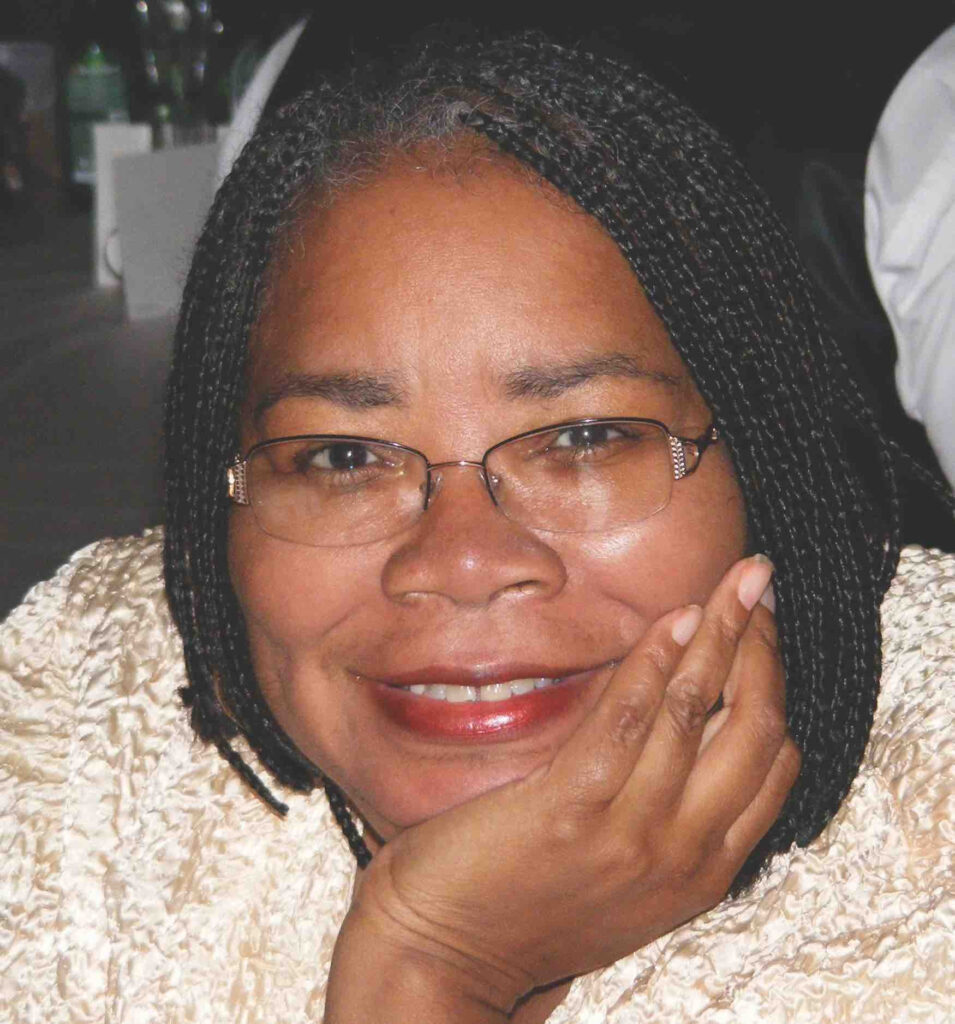
That time
we all heard it,
cool and clear,
cutting across the hot grit of the day.
The major Voice.
The adult Voice
forgoing Rolling River,
forgoing tearful tale of bale and barge
and other symptoms of an old despond.
Warning, in music-words
devout and large,
that we are each other’s
harvest:
we are each other’s
business:
we are each other’s
magnitude and bond. – Paul Robeson by Gwendolyn Brooks
In celebration of National Poetry Month, the April edition of our newsletter is guest written by Meredith Nnoka, the Envisioning Justice Fellow at Illinois Humanities and a longtime poetry reader and writer.
Dear friends,
This April marks our second National Poetry Month of the Covid-19 pandemic, arriving at a time when globally, nationwide, and statewide alike, engagement with and celebration of poetry is flourishing.
Just last October, essential American poet Louise Glück received the Nobel Prize in literature, recognized “for her unmistakable poetic voice that with austere beauty makes individual existence universal.” Likewise, 2021 began with millions of us gathering across the United States to commemorate the start of a new administration and coming away with Amanda Gorman’s powerful poetic voice still ringing in our ears.
We are fortunate, in Illinois, to be home to so many poets whose works illuminate our histories and reframe our present. Illinois recently named legendary Chicago poet and founding member of the Black Arts Movement Angela Jackson to be its newest addition to a prestigious lineage of state poets laureate, a select group that has included both Gwendolyn Brooks and Carl Sandburg. We are proud to announce that Ms. Jackson will be in residence at Illinois Humanities during her tenure as poet laureate. Through our Road Scholars Speakers Bureau, nonprofit organizations throughout Illinois can book Ms. Jackson to give free, public presentations in their communities.

Last year, Chicago-based poet Eve L. Ewing received a major accolade from Illinois Humanities as the co-recipient, along with her mother Sylvia Ewing, of the 2020 Public Humanities Awards. Later next month we’ll likewise be honoring this year’s Public Humanities Awards recipients on May 20 at 12:00 p.m., celebrating artist Dawoud Bey with the Beacon Award and artist and activist Tonika Lewis Johnson with the Public Humanities Award. Information on how to attend that event can be found here.
Tara Betts, another Chicago-based poet, is a 2021 recipient of an Illinois Humanities Envisioning Justice Artist and Humanist Commission. On April 14 at 7:00 p.m., the Envisioning Justice team will be leading the latest installment of Illinois Humanities’ Rapid Response series, which will examine questions broadly related to the theme of reform in the criminal legal system. You can find more information about how to attend that event here.

Each year Illinois Humanities celebrates the power of youth expression through the Gwendolyn Brooks Youth Poetry Awards. In addition to honoring the extraordinary legacy of poet Gwendolyn Brooks, the contest amplifies the voices of young people from across the state like 2019 and 2020 Gwendolyn Brooks Poetry Award winner Aanika Pfister, whose poem “On Resilience” is a testament to the strength and resilience of young people in the face of a global pandemic and a national reckoning with the injustices of racism. Please encourage young people in your community to submit a poem to the 5th Annual Gwendolyn Brooks Youth Poetry Awards, the deadline is May 31st. Also, as part of the Gwendolyn Brooks Youth Poetry Awards, on May 1st at 12:00 p.m., Tara Betts will be leading a free, virtual poetry writing workshop for youth in grades 7-12. Register for the workshop here.
As we can see, poetry thrives and helps us to thrive in turn. In this historical moment we remain, in Carl Sandburg’s words, “under the terrible burden of destiny,” awaiting a day when a global pandemic no longer determines our lives and connections. During this moment when the burden of destiny often feels too heavy to carry any further, I turn again and again to poetry to remind me that there are others carrying it too.
Amid the turmoil of this year, the arts and humanities provide us with reasons to celebrate, to take pride in what we’ve achieved. I end with the poetry of Kevin Young, incoming director at the National Museum of African American History and Culture: “Grief might be easy / if there wasn’t still / such beauty — would be far / simpler if the silver / maple didn’t thrust / its leaves into flame, / trusting that spring / will find it again.”
In community,
Meredith Nnoka
Envisioning Justice Fellow, Illinois Humanities